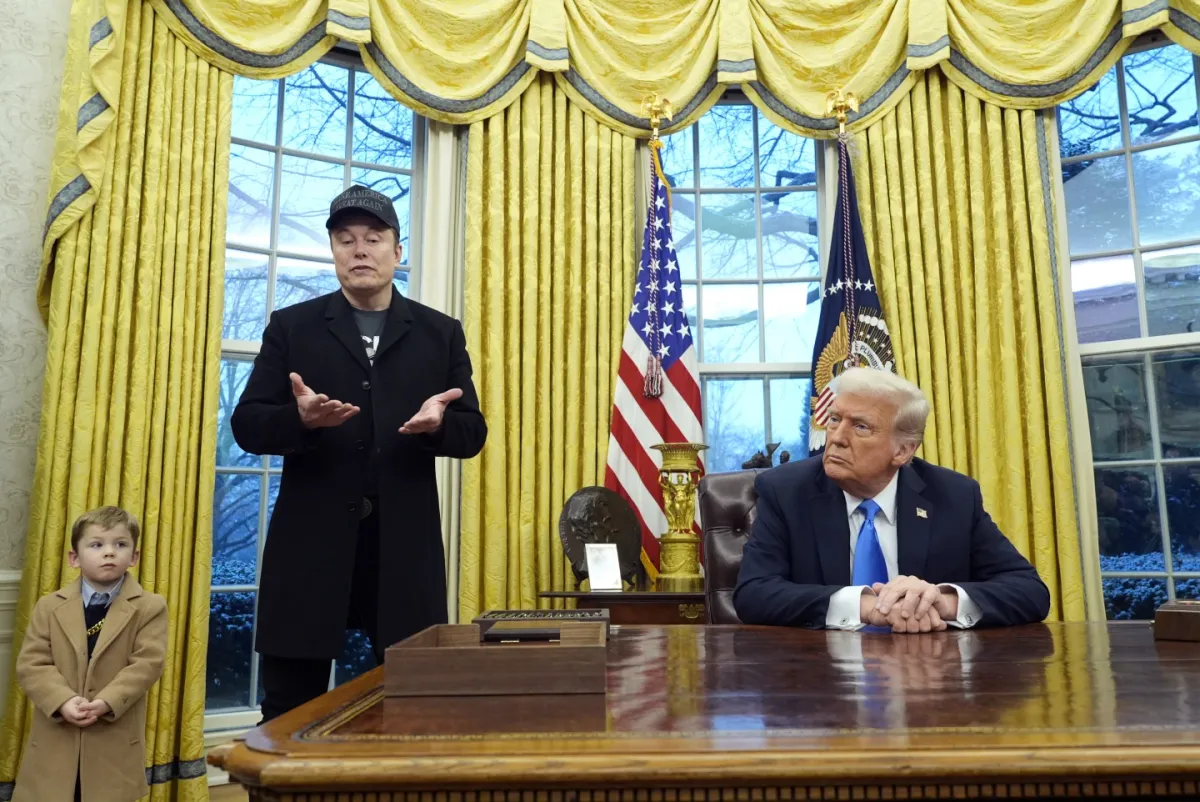Ahead of Election Day 2024, Elon Musk told voters that if Americans elected the Republican ticket, he’d uncover ways to cut “at least $2 trillion” from the federal budget. After Donald Trump’s victory, Musk decided to walk that back — a lot — and told the public that he believed he had a “good shot” at cutting $1 trillion, cutting his original goal in half.
Last week, at a White House cabinet meeting, the president’s top campaign donor added to the pattern, declaring that he and the quasi-governmental DOGE initiative “anticipate” $150 billion in spending cuts — a small fraction of the goal he pitched to voters last fall.
Making matters worse, that figure appears to be wrong, too. The New York Times reported:
… Mr. Musk’s group tallies up its savings so far, it inflates its progress by including billion-dollar errors, by counting spending that will not happen in the next fiscal year — and by making guesses about spending that might not happen at all.
The Times’ report, which has not been independently verified by MSNBC or NBC News, added that while the DOGE website claims to have saved $150 billion in federal spending, as of last week, “it has provided receipt-level breakdowns for less than 40 percent of that amount.” (When the Times sought explanations from DOGE and the White House, neither responded. Administration officials also made no effort to substantiate Musk’s claims.)
A companion report noted that the DOGE website has been “riddled with errors, double-counting and other large inaccuracies.”
One day earlier, the Times also noted that Musk had made provocative claims about apparent unemployment fraud that also fell apart under scrutiny.
Rebecca Cisco, a spokesperson for the Illinois Department of Employment Security, told the newspaper, in reference to the billionaire’s bogus assertions, “This data has been readily available, reported on and audited at various government levels and departments [for years]. … This is yet another example of a DOGE ‘report’ misunderstanding this data at best, blatantly mischaracterizing this data at worst.”
This comes on the heels of a related problem in which Musk also peddled false claims about Social Security fraud, leading to similar questions about whether the billionaire was simply confused or whether he was deliberately trying to deceive the public.
Indeed, for as long as there has been a DOGE endeavor, there has been evidence of Musk’s governmental incompetence.

The charitable explanation for this is that he’s simply a hapless amateur who fell for a familiar refrain. Too often, there’s an assumption among political “outsiders” that Washington, D.C., is filled with idiots. Paper-pushing bureaucrats, corrupt lobbyists and scared politicians focused solely on their re-election plans, the assumption goes, engage in a tiresome dance, but they collectively fail to do meaningful work or make tough decisions.
For those who believe this, there’s an obvious solution: Bold truth-tellers, fueled by common sense and a fresh perspective, are necessary in the nation’s capital, and they’ll shake things up without regard for stale and antiquated assumptions.
The problem with this assumption is that it’s ridiculous, as people who believe it inevitably learn when they arrive in D.C. and discover just how little they knew about governing and policymaking at the federal level.
The less charitable explanation is that Musk actually understood the relevant details perfectly well, and he peddled absurd claims out of a cynical belief that many would fall for nonsense.

